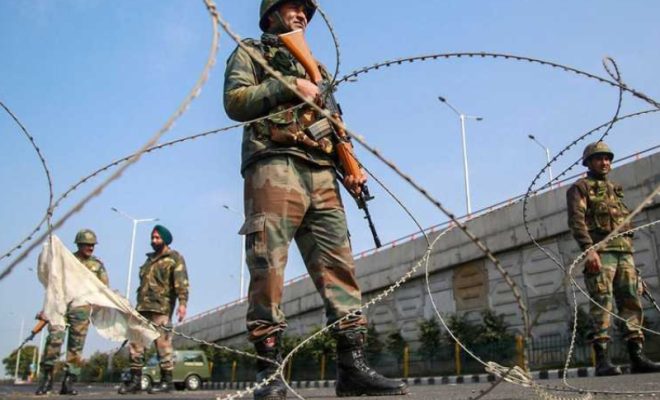Border Security vs. Community Rights: The Nagaland Conundrum

Concerns Rise Over Union Govt’s Decision to End Free Movement With Myanmar in Nagaland
The recent decision by the Union government to terminate the free movement regime (FMR) with Myanmar has stirred significant controversy and raised serious concerns, particularly in the state of Nagaland. This move has prompted strong opposition from various civil society organizations and tribal bodies, highlighting the complexities and implications of border security measures in the region.
The FMR agreement, which allowed for free movement of people within a 16 km radius along the India-Myanmar border, has been a longstanding arrangement to foster connectivity and facilitate interactions among border communities. However, the Union government’s decision to abolish this regime has sparked widespread discontent and protests, especially in Nagaland, where the impact is most keenly felt.
Civil Society Response: Calls for International Intervention
The Naga Students Federation (NSF), representing the sentiments of the Naga people, has taken a proactive stance by appealing to the United Nations for immediate intervention. This move underscores the gravity of the situation and the urgent need for international scrutiny and intervention to address the concerns of the affected communities.
Nagaland’s Unique Perspective: Historical and Cultural Context
Nagaland, with its rich cultural heritage and history of struggle for self-determination, views the termination of the FMR agreement as a direct affront to its identity and aspirations. The arbitrary division of the Naga homeland by national borders has long been a point of contention, and the recent decision by the Union government only exacerbates existing grievances and divisions.
Political Response: Advocacy for Continuation of FMR
Political leaders in Nagaland, including Chief Minister Neiphiu Rio, have echoed the concerns of civil society organizations and tribal bodies, emphasizing the need for a nuanced approach to border security that respects the rights and aspirations of the Naga people. The state government’s resolution to appeal to the Centre for the continuation of the FMR underscores the unity and solidarity among Naga leaders in addressing this critical issue.
Regional Implications: Manipur and Mizoram
The implications of the Union government’s decision extend beyond Nagaland, with neighboring states like Manipur and Mizoram also expressing concerns over border security measures and their impact on local communities. The demand for reconsideration and dialogue reflects the interconnectedness of regional dynamics and the need for collaborative solutions to complex challenges.
International Attention: UN Intervention and Diplomatic Efforts
The appeal to the United Nations by the NSF represents a significant escalation in efforts to draw international attention to the plight of border communities and the need for diplomatic intervention to safeguard their rights and interests. The role of international organizations and diplomatic channels in addressing cross-border issues cannot be overstated, and concerted efforts are needed to ensure a just and equitable resolution.
As tensions escalate and concerns mount, it is imperative for all stakeholders to engage in constructive dialogue and seek mutually acceptable solutions that uphold the rights and dignity of affected communities. The path to resolution lies in open communication, respect for diversity, and a commitment to peaceful coexistence across borders.
The Union government’s decision to end the free movement regime with Myanmar has sparked widespread discontent and opposition in Nagaland and beyond. The voices of civil society, political leaders, and international organizations must be heeded in the pursuit of a just and equitable resolution to this complex issue.



